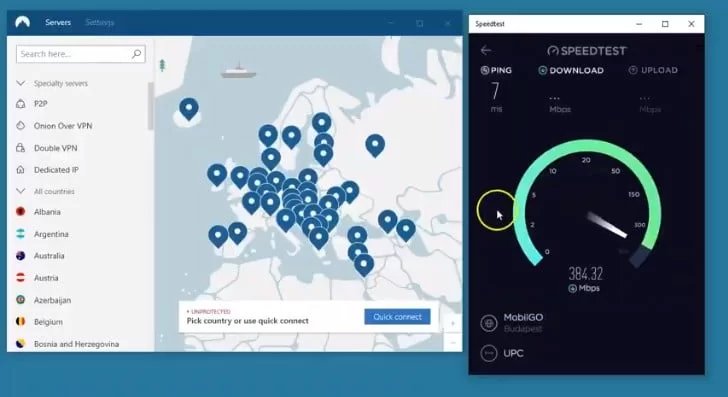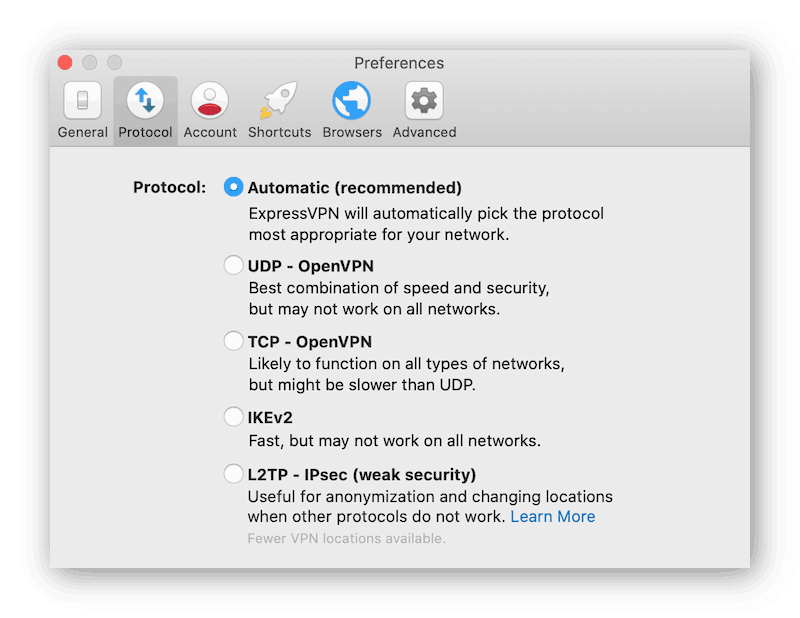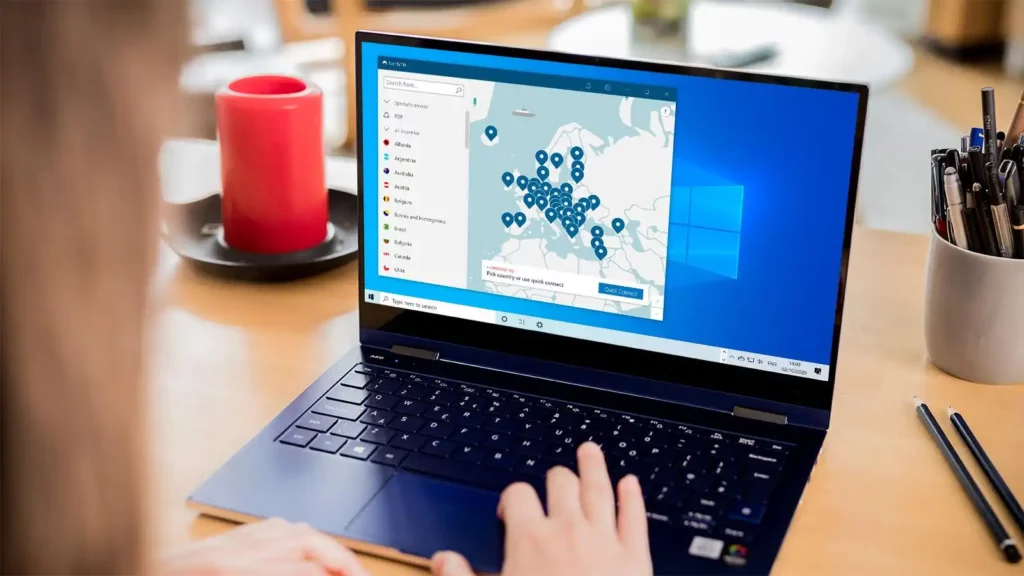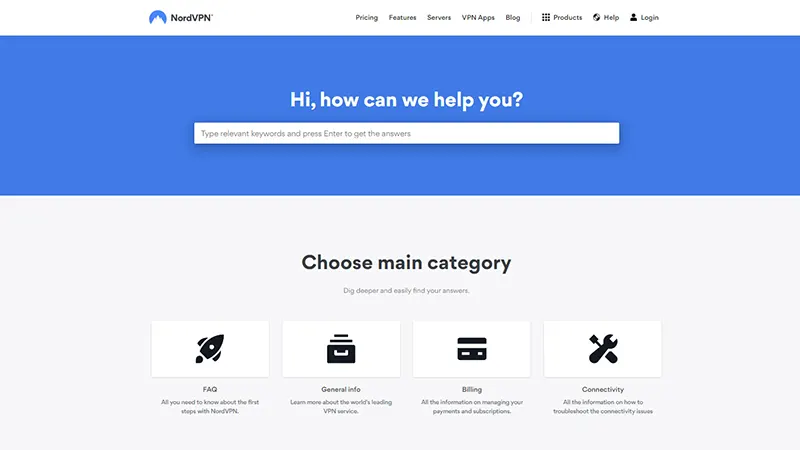Review process
To ensure that we are only recommending the best VPN services, we subject every VPN on our website to a rigorous and impartial testing process. Here, we outline how our testing specialists rate VPNs in detail and why you should consider their conclusions.
Each VPN is put through the same comprehensive testing procedure by our team of VPN consultants, ensuring that all the results you see are impartial and directly comparable. We test across a variety of platforms, and we buy each subscription outright at full retail cost. Once you purchase a VPN, we want your experience using it to be as close to ours as possible. To ensure that we are only recommending the best VPN services, we subject every VPN on our website to a rigorous and impartial testing process. Here, we outline how our testing analysts rate VPNs in detail and why you should believe their findings.
Scientific, methodical unbiased analysis
We conduct unbiased, independent VPN reviews, in contrast to other VPN review websites. VPN services will never influence how we rank the products we review, and we never accept payment in exchange for positive press. Each VPN is put through the same comprehensive testing procedure by our team of VPN experts, ensuring that all the results you see are impartial and directly comparable. We test across a variety of platforms, and we buy each subscription outright at full retail cost. Once you purchase a VPN, we want your experience using it to be as similar to ours as possible.
Your needs are always put first, and we do everything in our power to make your purchasing decision as simple as possible. In our reviews, we are always truthful, open, and transparent. Visit our page detailing how we make money to learn more about how we can afford to maintain such high editorial standards.
Our VPN Testing Procedures
Across VPNSoftwareGuide.com you’ll see two different types of ratings for VPNs: overall ratings and use case ratings.
Select use case ratings
When you want to see the best VPNs for a specific use, device, or region, our experts create a special methodology just for that page. They take into account the most crucial deciding factors specifically for that task and give them a weighting that reflects their importance. The sum of these subcategory ratings yields a special overall rating for that use case. You can find a whole testing methodology as well as the expert’s thought process on each ‘Best VPN’ page, so don’t worry if it all sounds a little confusing.
Overall VPN Ratings
No matter how you intend to use a VPN, our experts’ ratings are based on a predetermined set of testing criteria that they consider to be the most crucial for all VPNs. These rankings are derived from years’ worth of reliable, unbiased testing data.
Other logs are not all that benign. For instance, we immediately block any VPN that logs your IP address. The same is true for any VPN that keeps a record of your DNS requests or browsing habits. However, it’s not always so evident. Privacy policies may be complicated and loaded with legal jargon on purpose. Others are far too brief, leaving too many unanswered concerns. Every VPN is thoroughly investigated by our experts in terms of its ownership and history. Who is the business’s owner? Where does it call home? Can you trust them with your private information? The VPN will receive a low rating if the answers to these queries are unsatisfactory.
On every VPN review, we provide scores based on seven crucial factors. Here they are with a breakdown of how much each counts toward a VPN’s overall rating:
- Digital Privacy & Logging Policy: 30%
- Speed Testing: 25%
- Overall Features & Security: 20%
- Video Streaming: 10%
- Torrenting: 5%
- Ease Of Use: 5%
- Customer Support: 5%
Three more categories also receive ratings from us: “Price & Value for Money,” “Bypassing Censorship,” and “Server Locations.” Value for the money and price are not given any weight. Price, in our opinion, is wholly subjective; what is costly for one user may be reasonable for another. As a result, it has no bearing on the final score. Simply said, the subcategory rating is provided so you may evaluate different VPNs.
Additionally, server locations and bypassing censorship are not given their own distinctive weighting. This is due to the fact that they account for 20% of the budget earmarked for “Features, Encryption & Security.” Despite the fact that some readers may view it as a very crucial feature, we nonetheless focus to it and assign it its own subcategory grade. Continue reading to learn exactly what we evaluate when evaluating VPN services, how significant each category is to us, and what makes a good VPN better than a bad one.
1. Digital Privacy & Logging Policy: 30%
Minimum Requirement: No personal information is kept, and aggregate data is immediately destroyed. We suggest: a rigorous no-logs policy with no connection or activity logs whatsoever.
Every review starts with a visit to the VPN provider’s website where we peruse the logging and privacy policies. Almost all VPNs keep some of your data. Some of this, such as the total number of users connected to a server or the entire volume of data exchanged in a 24-hour period, is perfectly fine. These logs, which we frequently refer to as “aggregated usage data,” don’t compromise your privacy.
1. Speed Testing: 25%
Minimum Requirement: Fast enough for local connections to support HD streaming.
We Recommend: Speed loss of no more than 20% for nearby connections and 40% for distant ones.
Another element that affects every single VPN user is speed. Every action you take when connected to your VPN is impacted by it, and if it’s too slow, you’re less likely to utilise it. In order to determine VPN speed, we use two separate testing techniques:
Strategy #1: Manual Speed Tests
We use manual speed tests to measure the speed of every VPN service you see reviewed on our website. To begin with, we record our internet speed without the VPN running. We then launch the VPN, connecting to servers in the US (East Coast), UK, Australia, Central Europe (usually Germany, or France), and Singapore. If one of these locations is not available, we’ll test a nearby country or region instead. Testing locations around the world gives a good overview of how a VPN performs over short, medium and long distances.

We repeatedly test each location, comparing the average speed there to our own speeds while the VPN isn’t enabled. This enables us to determine the percentage speed decrease caused by the VPN. Each region receives a unique score based on how much speed was lost. This is true for both increased latency and decreased download and upload rates. The impact of these three variables on the overall speed rating is seen below:
- Download speed: 70%
- Upload speed: 20%
- Ping: 5%
Local connection speed (for instance, from London to London) is given priority, with importance reducing as distance increases. Additionally, we take into account upload speeds and ping/latency. Using whichever connection protocol the service provider claims to be the quickest while still being secure, we test VPN speeds. In certain cases, the VPN provider may have its own proprietary protocol, but most of the time it will either be OpenVPN or WireGuard. IKEv2 is another well-liked option.

Strategy #2: Automated Speed Tests
To provide reliable and current data, we have developed a global testing programme that monitors VPN speeds throughout the day. To test the 18 most popular VPNs automatically right now, we use our technology. We test in the following areas:
- Amsterdam, NL
- Frankfurt, DE
- London, UK
- New York, US
- Paris, FR
- San Francisco, US
- Singapore
- Sydney, AU
- Tokyo, JP
- Toronto, CA
- Vancouver, CA
Our engineering team built our testing infrastructure in-house, and it conducts automated tests between and inside each of the cities mentioned above. This offers you valuable information about how a VPN will work for you wherever in the world. Here is an illustration of our VPN speed test tool combined with real-time information from some of the fastest VPN providers:
NB: The speed rating in our VPN ratings is determined using the information from our manual testing. Our list of the top five fastest VPNs uses automatic data. It is intended to serve as a live comparison tool for readers like you.
3. Overall Features & Security: 20%
Minimum Requirement: AES-128 encryption, 100 servers, internet kill switch.
We Recommend: All the above, plus extra security features and obfuscation tools.
The basic function of a VPN is to protect your online privacy. That is why we give this category such a large weight. The protocol choice is the first item we look at. IKEv2 and OpenVPN (UDP/TCP) are two secure and well-liked options. Along with other proprietary protocols developed by VPN firms themselves, WireGuard is a more recent alternative that is also a fantastic pick. We also examine the encryption protocol. AES-256 is widely used and extraordinarily secure. Although AES-128 is a little less popular, it is also reliable. To ensure that the VPN is operating properly, we perform tests for IPv4, DNS, WebRTC, and HTML5 geolocation leaks. The speed rating in our VPN ratings is determined using the information from our manual testing.
Each and every VPN server is counted, together with the total number of nations and cities in which they are dispersed. The number of them and how evenly distributed they are globally are what are utilised to determine the Server Locations ranking.
The kill switch is the most crucial added feature, but we also test out split-tunneling, obfuscation, and ad blockers on every platform. The capability of getting over censorship is also taken into account in this area. Working against censorship is less of a must than a bonus, but when a VPN is successful at it, it is really amazing.
The kill switch is the most crucial added feature, but we also test out split-tunneling, obfuscation, and ad blockers on every platform. The capability of getting over censorship is also taken into account in this area. Working against censorship is less of a must than a bonus, but when a VPN is successful at it, it is really amazing.
4. Video Streaming: 10%
Minimum Requirement: Works with US Netflix.
We Recommend: Unblocks numerous streaming services and multiple regional content libraries.
We just purchase a subscription to the service in issue and test which VPN servers are able to unblock it to conduct our testing of VPNs for streaming. We currently have active accounts and subscriptions for: We have a test server in China that we can remotely access from our London office. On it, we have many VPNs installed, and every week, we test them to see whether they can get across China’s Great Firewall.
- Netflix
- Amazon Prime Video
- Disney+ (including Star)
- HBO Max
- DAZN
- Hulu
- Showtime
- BBC iPlayer
- Now TV (Sky)
- ITV Hub
- All 4
- Spotify
Where possible, we try to connect to several libraries spread throughout the globe, which may require establishing connections with hundreds of different servers using a variety of different protocols. The absolute minimum is the ability to stream US Netflix, and the perfect streaming VPN will routinely function with BBC iPlayer, Disney+, and several other Netflix libraries. We prefer VPNs that simply function with the required service on any server in the relevant location, even if dedicated streaming servers might be handy if they operate consistently.
Every week, we run these streaming tests on both desktop and Amazon Fire TV Stick operating systems.
4. Torrenting: 10%
Minimum Requirement: Allows unrestricted P2P traffic on multiple servers worldwide.
We Recommend: Allows torrenting on all servers, with no restrictions and no logs retained.
Torrenting testing is one of the methods we use most intricately. Bitrate is what matters most to us since it indicates how quickly the torrent client can download files while the VPN is active. We establish a baseline by downloading a torrent without a VPN connection, then we track the download rates of the same torrent while using a VPN and compute the difference. Whether or not you can trust the VPN with your data is the second most crucial issue. What is its approach to privacy, and more crucially, how has it dealt with demands for data in the past?
The proliferation of P2P-capable servers is another important element. Torrenting is permitted on every server by the best VPN. If one doesn’t, we search for a decent worldwide spread to prevent users from having to utilise a server that is thousands of kilometres away from their location. Last but not least, we’re looking for a VPN kill switch and port forwarding. If the VPN disconnects, one cuts off your connection (preventing other torrenters from seeing your true IP address).
The other lets torrents move at a much faster rate by opening ports on your network adapter. Few VPNs provide both.
6. Ease of Use: 5%
Minimum Requirement: On most major systems, simple installation and user-friendly applications.
We Recommend: All of the aforementioned, plus clear in-app labelling and applications for non-traditional platforms.
Easy of use is a difficult notion to quantify. Although usability can be somewhat subjective, our testers try to evaluate each VPN as objectively as they can. At the very least, a VPN should be quick and easy to set up. It shouldn’t take more than a few clicks to connect to a server with all the necessary parameters in their proper locations. According to us, Microsoft Windows, Google Android, and Apple macOS and iOS are the “core” operating systems. Most VPN providers have applications for each of the four, and if they don’t, we’ll ask customer care why.

Any other platforms are a plus. Even though they are more specialised, Linux, Amazon Fire TV, router GUIs, and browser extensions can be just as significant to some users. The absolute best VPNs offer as much guidance and clarity as they can inside their programmes. Toggles with clear labels, user-friendly layouts, and even built-in walkthroughs help novice users feel at ease, and we commend these features in our overall ratings.
7. Customer Support: 5%
Minimum Requirement: Easy installation and intuitive apps on most major platforms.
We Recommend: All of the above, plus clear in-app labels and apps for unusual platforms.
Even our testing specialists occasionally encounter issues when use VPNs. Even the best VPNs aren’t perfect, but what distinguishes them from the competition is how they address customer complaints. A VPN should at the very least have a dedicated contact email. Getting a response shouldn’t take days; the sooner the better, and no more than 48 hours is acceptable.
Online materials are also of great use. Not all problems can be solved by speaking to a live person, and not all problems do. Any VPN should have basic troubleshooting instructions available on its website. With a wealth of internet resources, we commend VPN services. Big bonuses include setup instructions for more challenging systems, troubleshooting for common problem codes, and instructions on how to use more sophisticated features.

Live chat, however, is the most crucial component. A huge perk is being able to speak with a live person whenever you need to, especially if that assistance is always accessible. This capability is being offered by an increasing number of VPNs, which is great news for customers.
